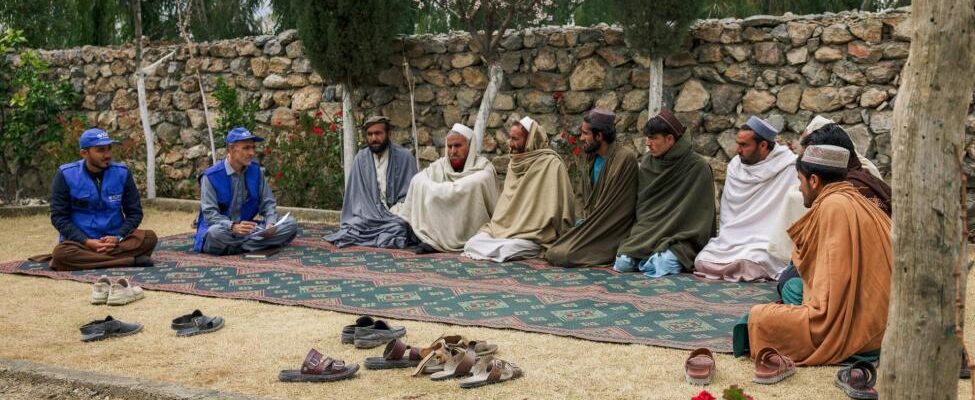New water infrastructure supports a peaceful rural community
Afghanistan | 2023 | CBPF
Afghanistan, Nangarhar province. The village of Loy Ragha is split in two. One community lives higher up the hillside, and the other down the valley. They have lived peacefully for decades, sharing a water system that relies on solar power. But recently, water has grown more scarce.
“We have faced difficult times with water scarcity,” said Sabit Khan, a community member. “Getting water for our basic needs became a daily battle,” he says, and a source of tension.
It was not always this way.
Across Afghanistan, severe climate change is driving a widespread water crisis that leaves no corner of the country untouched, driving food, health and nutrition needs. Providing safe water is a key priority for the Afghanistan Humanitarian Response Plan in 2024.
Indeed, in Loy Ragha, the climactic shocks combined with a lack of maintenance and intermittent power supply in recent years led to worsening water shortages. These, in turn, drove near-daily disputes over water allocation. The tensions were slowly disrupting the peaceful life the village had for so long enjoyed.
Women spent extra time fetching water from further afield – or their children skipped school to help carry the water. Maihan, a water point clerk, explained, “Fetching water became a heavy burden for people, stealing precious time from their jobs and education.”
To help resolve the issue the International Organization for Migration (IOM) with funding from the Afghanistan Humanitarian Fund (AHF), rehabilitated the water network by repairing and installing new solar panels, and rebuilding tap stands and pipes. This work brought the water system back to life, delivering clean and sustainable water access for more than 100 families.
The team also brought the village together for training on water conservation and water system management, fostering a culture of sustainability and working together.
“The days of water scarcity and conflict are behind us. Now, we are blessed with abundance and resolution,” said Sabit Khan.
Adapted from a story from IOM: https://afghanistan.iom.int/stories/bridging-gap-water-conflict-resolution-brought-cohesion-communities-afghanistan
More information about the Afghanistan Humanitarian Fund
